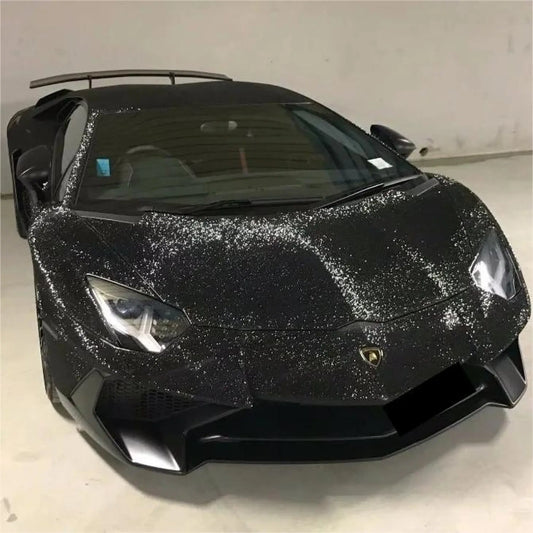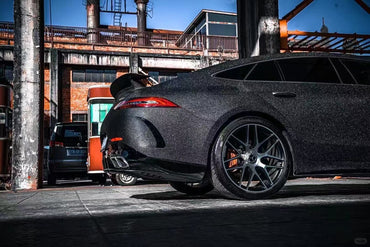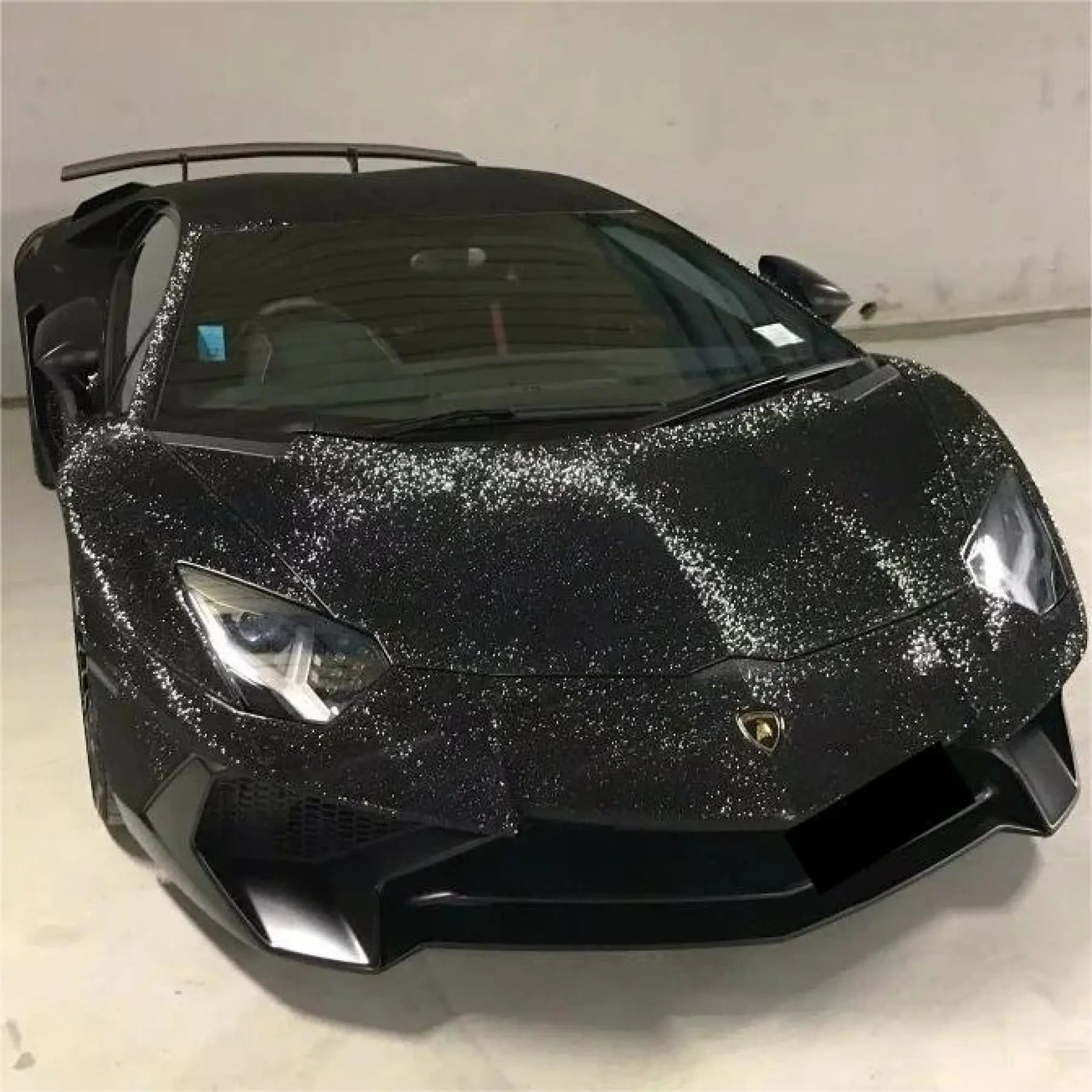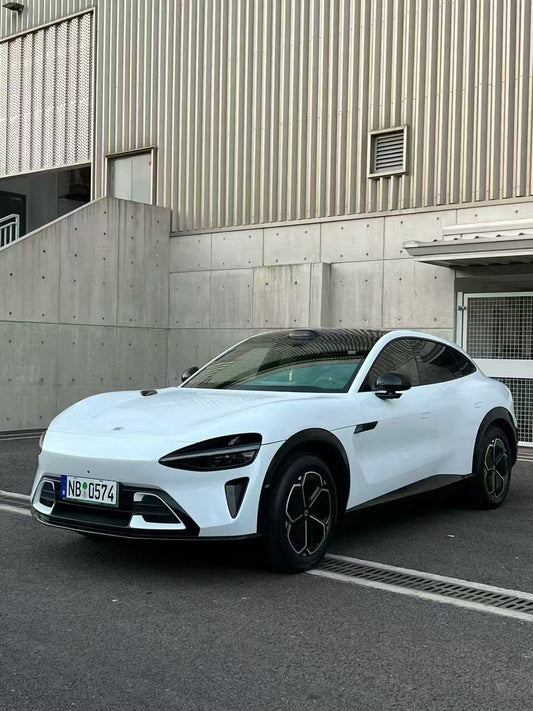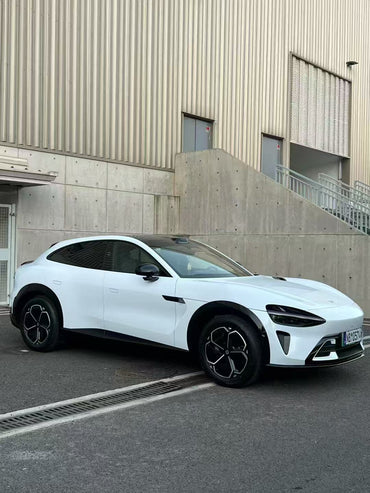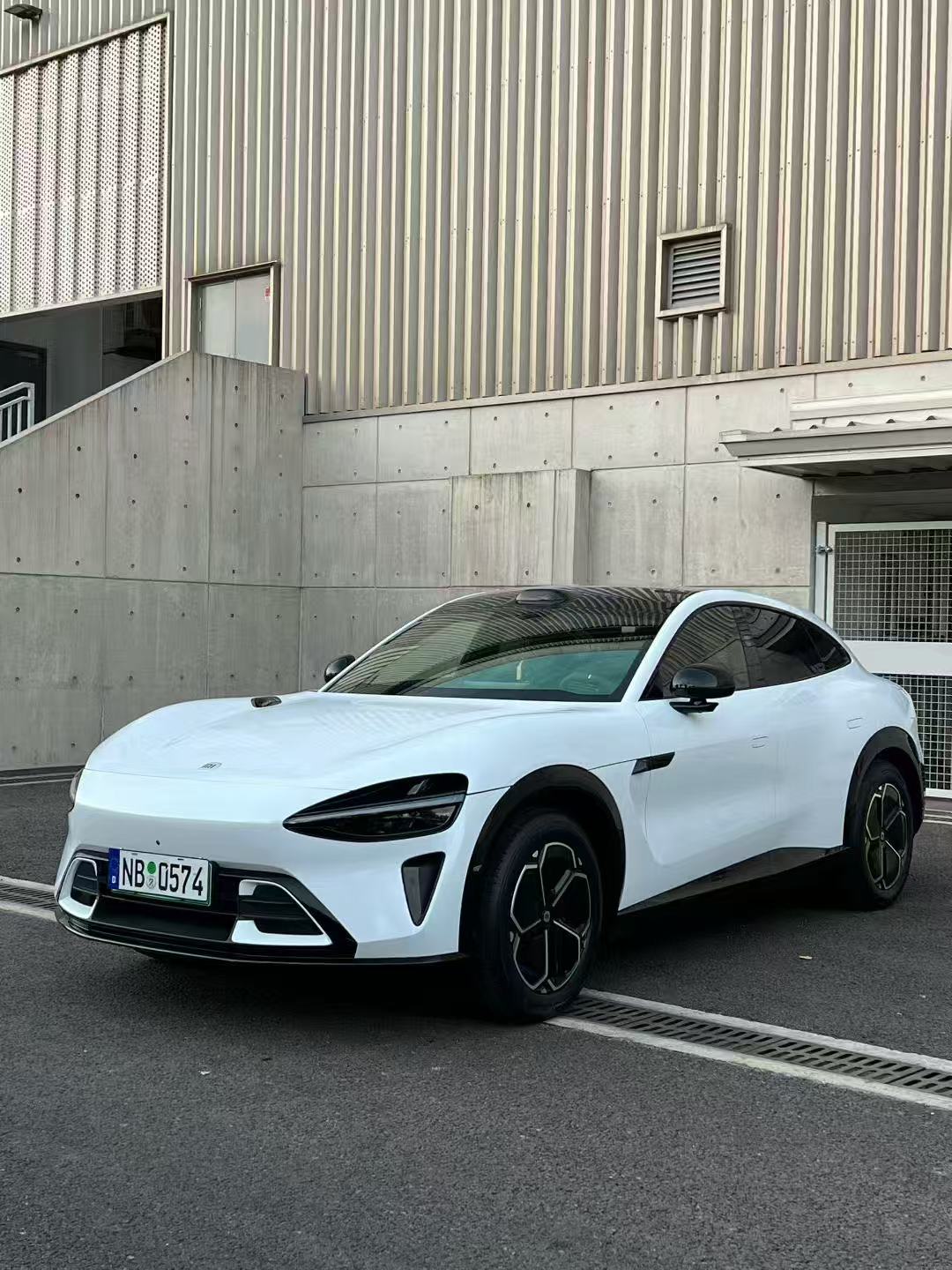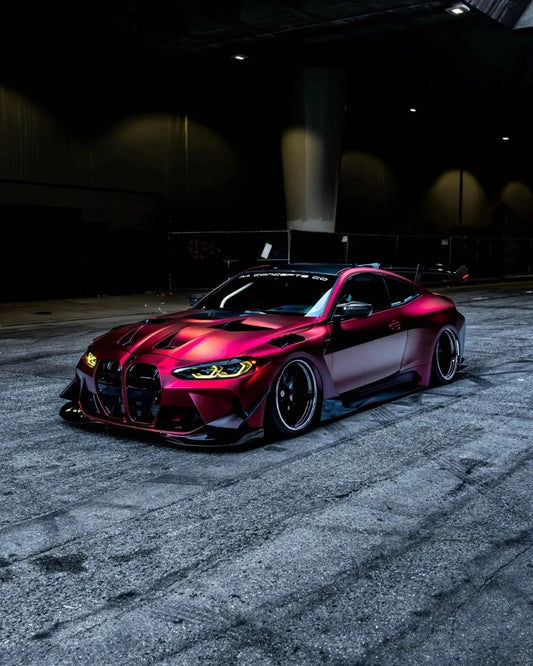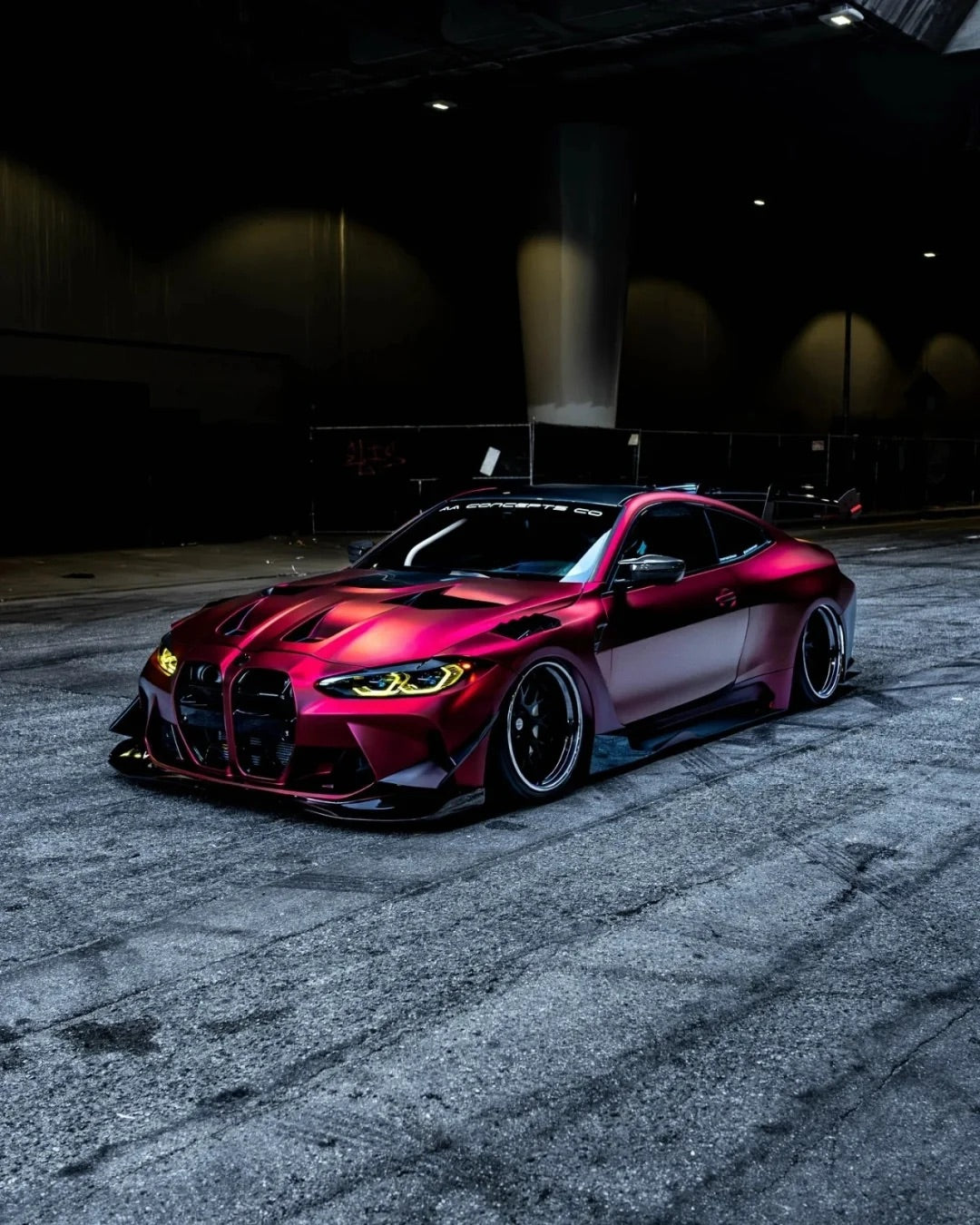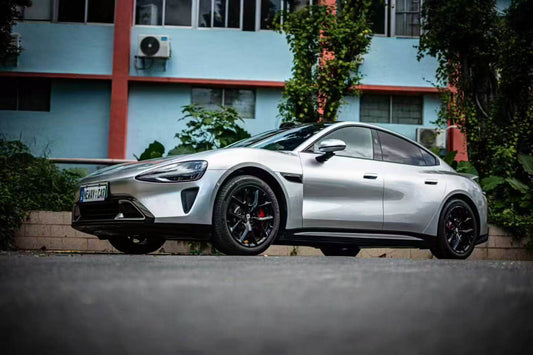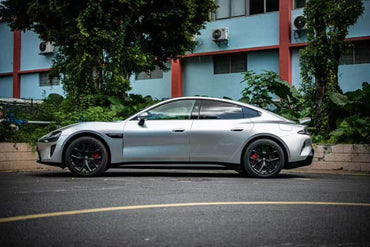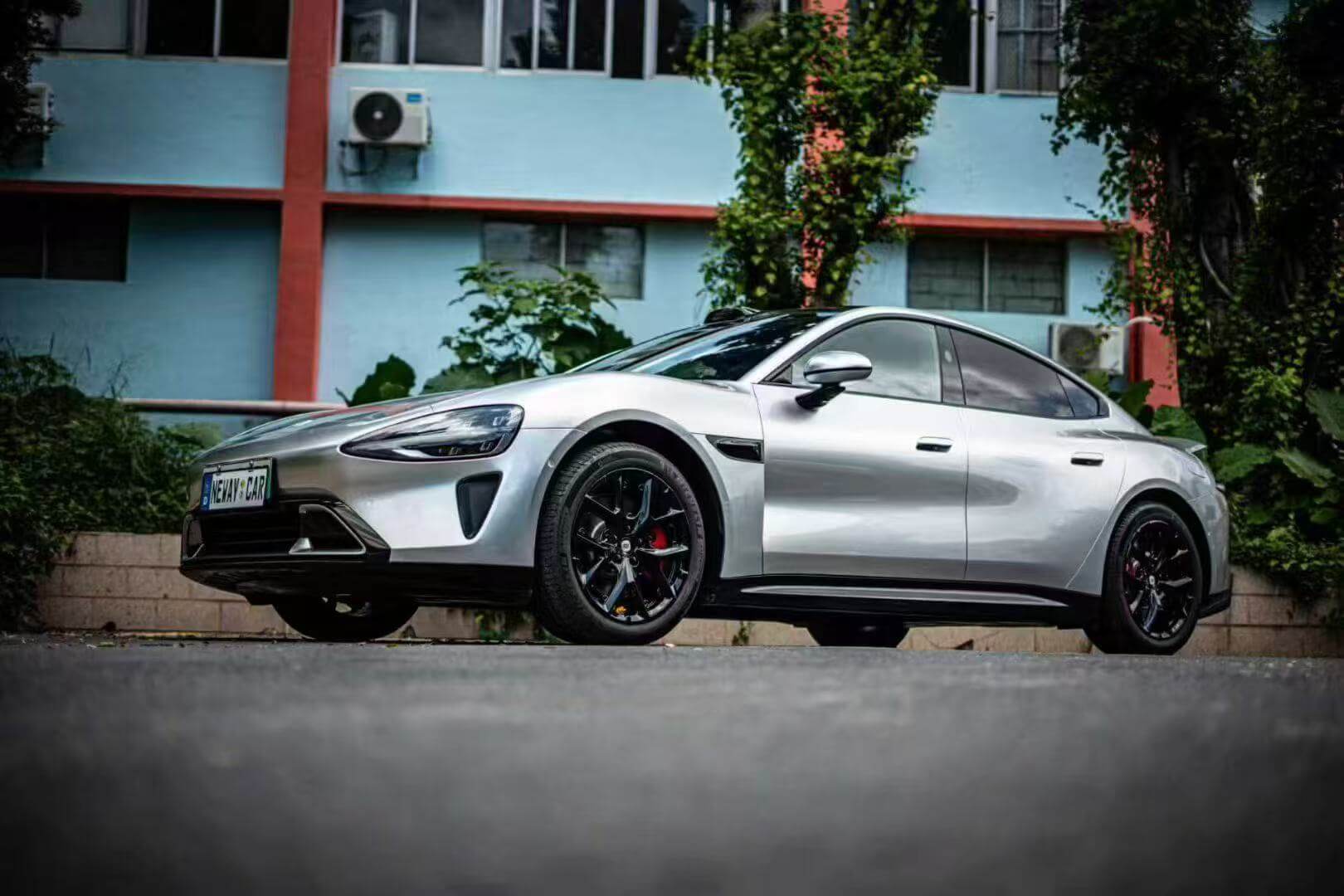Introduction: Why Surface Preparation Makes or Breaks Your Car Wrap
Surface preparation is the most critical yet often overlooked step in car wrap installation. Vinyl wraps adhere to the surface of your car using pressure-sensitive adhesives, and the smoother the surface, the better the wrap will bond. Whether you're installing rainbow laser vinyl wraps, TPU paint protection film, or crystal vinyl wraps from Sailifilm, proper prep work determines the difference between a professional-looking installation that lasts years versus a failing wrap that peels within months.
In 2025, with the car wrap market projected to reach $10.04 billion and grow at more than 18% annually, understanding surface preparation has never been more crucial for both DIY enthusiasts and professional installers.
The Science Behind Vinyl Wrap Adhesion
Modern car wraps rely on pressure-sensitive adhesives that create molecular bonds with the vehicle surface. These adhesives work optimally when they contact a clean, uniform surface free of contaminants. A clean and smooth surface allows the adhesive to bond effectively, creating a watertight seal that prevents air and moisture from getting trapped under the wrap.
Key Factors Affecting Adhesion:
Temperature Control: We recommend a working temperature to be in the range of 22°C. If the temperature is too low, there is a higher risk of tearing as the cold makes the film more brittle.
Surface Contamination: Surfaces with any grease, oil or wax greatly reduce film adhesion and may form bubbles on neglected areas.
Material Quality: Premium wraps like Sailifilm's ultra-matte wrap collection feature advanced adhesive systems designed to bond securely when applied to properly prepared surfaces.
Essential Surface Preparation Steps
Step 1: Initial Assessment and Cleaning
Before beginning any prep work, thoroughly inspect your vehicle for existing damage. Minor scratches don't pose a problem, but chips, dents, gouges, and rust can cause problems with vinyl wrap.
What to look for:
- Deep scratches or gouges
- Rust spots or corrosion
- Existing paint damage
- Dents or body imperfections
- Old adhesive residue
Initial cleaning process:
- Wash vehicle with high-quality car wash soap
- Rinse thoroughly and dry completely
- Inspect surface under proper lighting
Step 2: Deep Degreasing Process
The first step is to clean the surface with paint-safe grease and wax remover to remove any dirt or grime on the surface. This is where many installations fail - inadequate degreasing.
Recommended degreasing agents:
- Isopropyl alcohol (70% minimum concentration)
- Automotive wax and grease remover
- 3M Adhesion Promoter (for challenging surfaces)
Application technique:
- Apply degreaser with lint-free cloth
- Work in small sections
- Allow proper drying time
- Verify complete removal of all residues
Step 3: Final Surface Preparation
Temperature considerations: Ensure your workspace and vehicle surface are within the optimal temperature range. Make sure the substrate is completely dry before applying the film. If necessary, use a blow dryer or heat gun to speed up the process.
Final prep checklist:
- ✅ Surface completely clean and dry
- ✅ All wax and grease removed
- ✅ Temperature optimal for installation
- ✅ Work area dust-free
- ✅ Tools and materials ready
Advanced Preparation Techniques for Premium Results
Using Adhesion Promoters
For challenging surfaces or maximum durability, 3M Primer 94 is an adhesion promoter used to enhance the bond between vehicle wraps and adhesive tapes to low energy surfaces such as plastic trim pieces and textured surfaces.
Application process:
- Clean surface with 50/50 isopropyl alcohol mixture
- Apply thin, uniform coating of adhesion promoter
- Allow 5 minutes drying time at room temperature
- Apply wrap while surface remains contamination-free
Handling Special Surface Types
Textured surfaces: These require special attention and may need multiple primer applications.
Previously painted surfaces: Ensure paint is fully cured (minimum 30 days for fresh paint).
Plastic components: Often benefit from adhesion promoters, especially for 3D carbon fiber wraps.
Common Surface Preparation Mistakes to Avoid
Skipping the Degreasing Step: Many DIYers think washing the car is enough, but grease and wax need to be removed separately with a degreaser.
Critical Mistakes That Cause Wrap Failure:
- Inadequate cleaning time: Rushing through the prep process
- Using wrong cleaning products: Harsh chemicals can damage paint
- Insufficient drying time: Moisture trapped under wrap causes peeling
- Ignoring surface imperfections: Small defects become major problems
- Wrong environmental conditions: Installing in dusty or humid conditions
Pro Tips for Perfect Prep:
- Double-check contamination: Use the "water break test" - properly cleaned surfaces allow water to sheet off evenly
- Verify drying: Any moisture will compromise adhesion
- Control environment: Work in clean, temperature-controlled conditions when possible
Tools and Materials for Optimal Surface Preparation
Essential Cleaning Supplies:
- High-quality microfiber cloths (lint-free)
- Automotive degreaser/wax remover
- Isopropyl alcohol (70%+ concentration)
- Clean water for rinsing
- Compressed air for drying (optional)
Professional-Grade Tools:
- Infrared thermometer for surface temperature
- Tack cloth for final wipe-down
- Spray bottles for controlled application
- Clean work area with proper lighting
Surface Preparation for Different Sailifilm Product Lines
Premium TPU Paint Protection Films
Our colored paint protection film collection requires the highest level of surface preparation due to their precision fit and optical clarity requirements.
Special considerations:
- Absolute contamination-free surface
- Perfect edge preparation for invisible installation
- Temperature control throughout process
Decorative Vinyl Wraps
Products like our liquid chrome wrap and dual color dream vinyl wrap collections are more forgiving but still require proper prep.
Prep focus areas:
- Uniform adhesion across large panels
- Special attention to curves and edges
- Proper surface texture for optimal conformability
Specialty Finishes
Our metallic vinyl wrap and best sellers collection require specific prep techniques to achieve their signature appearances.
Environmental Factors and Timing
Optimal Installation Conditions:
- Temperature: 68-78°F (20-25°C)
- Humidity: Below 50% relative humidity
- Wind: Minimal air movement
- Lighting: Bright, even illumination
Timing Considerations:
- Plan for uninterrupted work time
- Allow full adhesive cure time (24-48 hours)
- Consider weather patterns for outdoor installations
Quality Control and Inspection
Pre-Installation Inspection:
- Visual examination under bright light
- Tactile inspection for surface texture
- Contamination test with clean cloth
- Temperature verification
Post-Prep Verification:
- Water break test for cleanliness
- Surface texture assessment
- Final contamination check
- Environmental condition confirmation
Troubleshooting Common Surface Issues
Dealing with Existing Damage:
Light scratches: Often can be wrapped over successfully Deep scratches: May require filling or paint touch-up Rust spots: For minor surface rust, gentle sanding with fine-grit sandpaper can help smooth the area
Contamination Problems:
- Wax residue: Requires aggressive degreasing
- Silicon contamination: May need specialized cleaners
- Previous adhesive: Remove completely before proceeding
Advanced Surface Preparation for Complex Installations
Multi-Panel Installations:
When wrapping entire vehicles with products from our car vinyl wrap collection, systematic surface preparation across all panels ensures uniform adhesion and appearance.
Panel-by-panel approach:
- Work in logical sequence
- Maintain consistent prep standards
- Verify each panel before proceeding
- Document any special conditions
Color-Specific Considerations:
Different colors from our extensive range (white wraps, black wraps, blue wraps, etc.) may show surface imperfections differently.
Color-specific prep tips:
- Dark colors hide minor imperfections better
- Light colors require perfect surface preparation
- Metallic finishes show every surface flaw
- Matte finishes are most forgiving of minor defects
Maintenance and Long-Term Performance
Proper surface preparation directly impacts long-term wrap performance. With proper installation on well-prepared surfaces, premium vinyl wraps can maintain their appearance for 5-7 years with proper care.
Factors Affecting Longevity:
- Initial surface preparation quality
- Environmental exposure
- Maintenance practices
- Wrap material quality
Professional Installation vs. DIY: Surface Prep Considerations
DIY Surface Preparation:
- Requires patience and attention to detail
- Essential tools and materials investment
- Learning curve for proper techniques
- Cost-effective for single vehicles
Professional Installation Benefits:
- Expert-level surface assessment
- Professional-grade tools and materials
- Proven prep techniques
- Warranty coverage
Sample Kits and Testing
Before committing to a full installation, consider ordering from our sample kits collection to test preparation techniques and adhesion on your specific vehicle surface.
Testing benefits:
- Verify prep technique effectiveness
- Assess surface compatibility
- Practice installation methods
- Ensure color and finish satisfaction
Conclusion: Surface Preparation as Investment Protection
Proper surface preparation represents a critical investment in your vehicle wrap's success. Whether you're installing our innovative rainbow laser vinyl wraps or protective TPU paint protection wrap, the time and effort invested in thorough surface preparation pays dividends in installation quality, appearance, and longevity.
Remember: Great wraps start with great prep. Don't compromise on this foundation step - your vehicle and your investment deserve the best possible start.
Related Resources
For comprehensive installation guidance, check out our complete wrapping tools collection featuring professional-grade squeegees, heat guns, and precision cutting tools.
External Resources:


